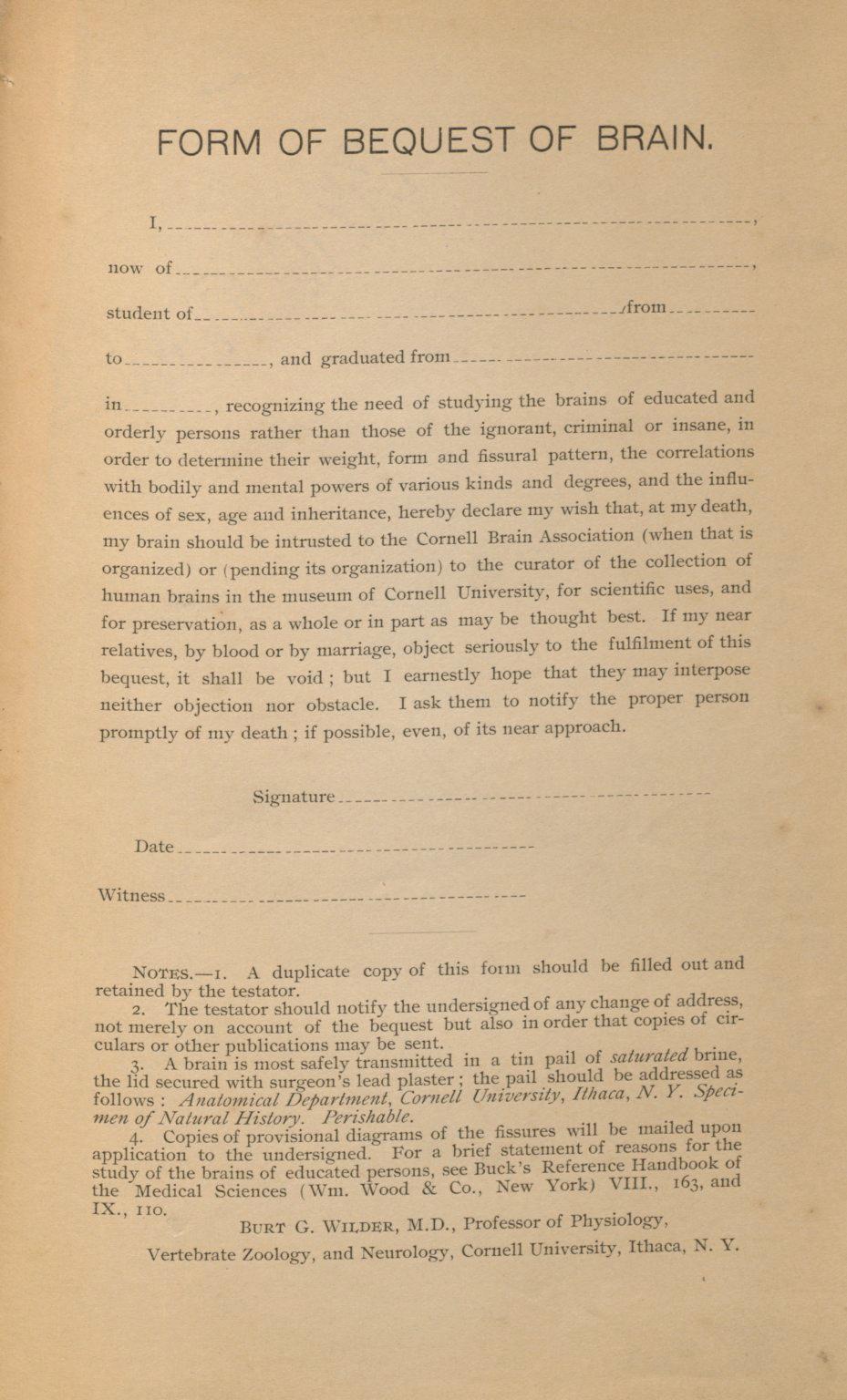The Vault is Slate’s new history blog. Like us on Facebook; follow us on Twitter @slatevault; find us on Tumblr. Find out more about what this space is all about here.
This bequest form was provided to people interested in donating their brains to the Wilder Brain Collection at Cornell University. Physiologist and anatomist Burt Green Wilder started the collection in 1889, hoping to understand potential correlations between brain “weight, form, and fissural pattern” and “bodily and mental powers of various kinds and degrees.”
Wilder wanted only the brains of “educated and orderly persons rather than those of the ignorant, criminal or insane.” Many specimens available for study in the nineteenth century tended to be from bodies of people in the latter three categories. Wilder’s was one of a few late-nineteenth-century groups of “educated persons” who pledged to remedy this situation by analyzing each other’s brains upon death. The French Society for Mutual Autopsy was one such group; the American Anthropometric Society, housed at the University of Pennsylvania, was another.
This form asked for the donor’s educational qualifications, including alma mater. Reflecting Wilder’s expectation that many donors would be scholars of some stripe, the Association also requested that the donor specify academic lineage.
Helpfully, the form advised any descendents who might be reading it on the matter of how to mail the brain to the laboratory:
A brain is most safely transmitted in a tin pail of saturated brine, the lid secured with surgeon’s lead plaster; the pail should be addressed as follows…
The Wilder collection fell into disarray by midcentury, as neurology moved away from phrenological speculations. Partially rescued in the late 1970s, the collection now contains seventy brains, in comparison to its former 600. One of these belongs to Wilder himself, who died in 1925; other famous brains in the collection include the remains of psychologist Edward B. Titchener; naturalist Henry Augustus Ward; and suffragist Helen Hamilton Gardener.

Burt Green Wilder Papers, Division of Rare and Manuscript Collections, Cornell University Library.